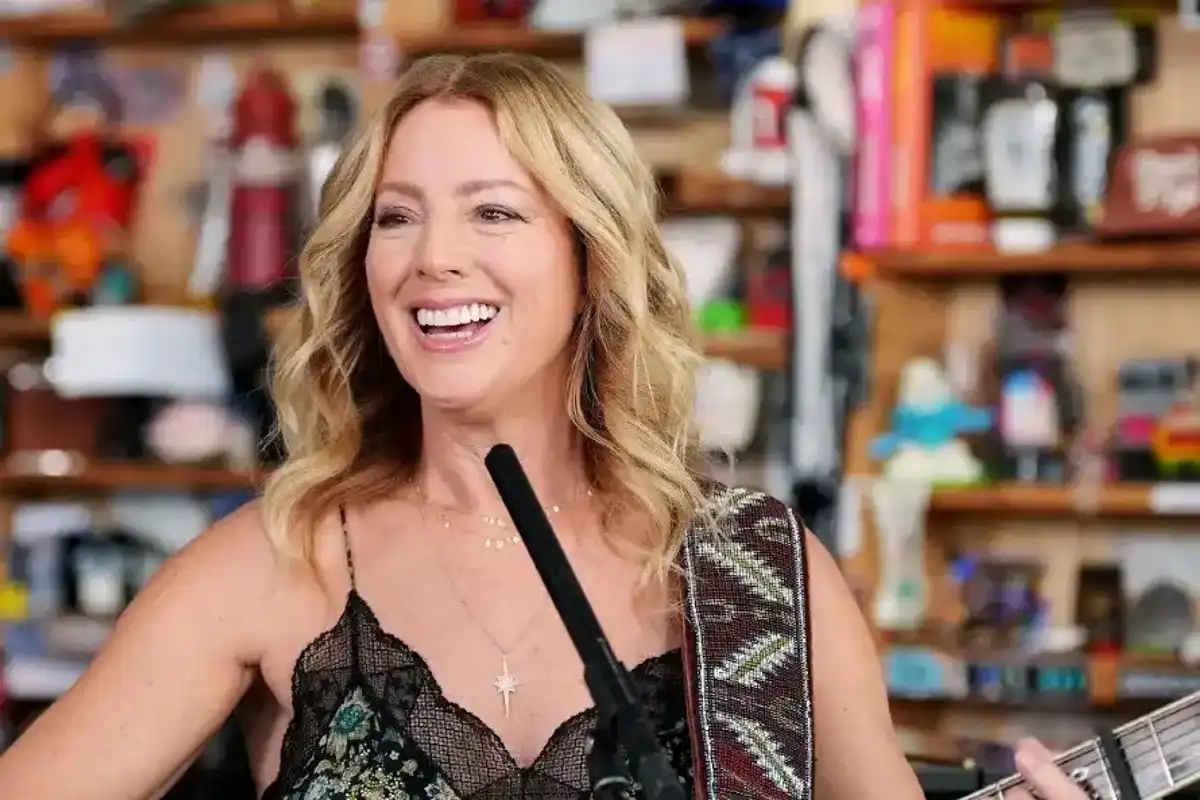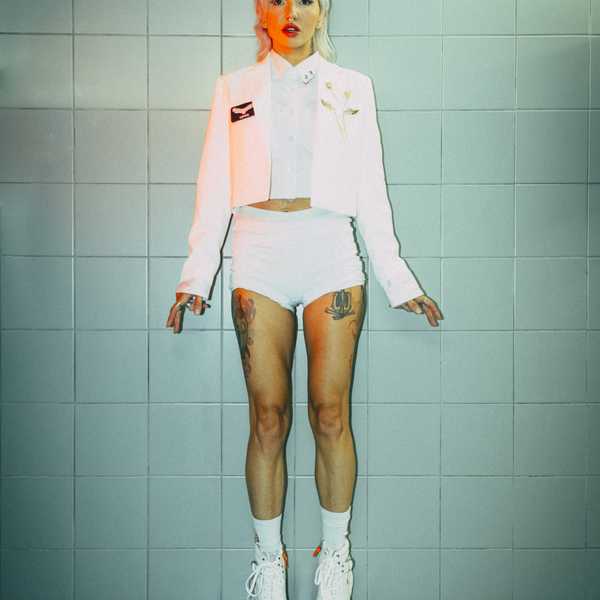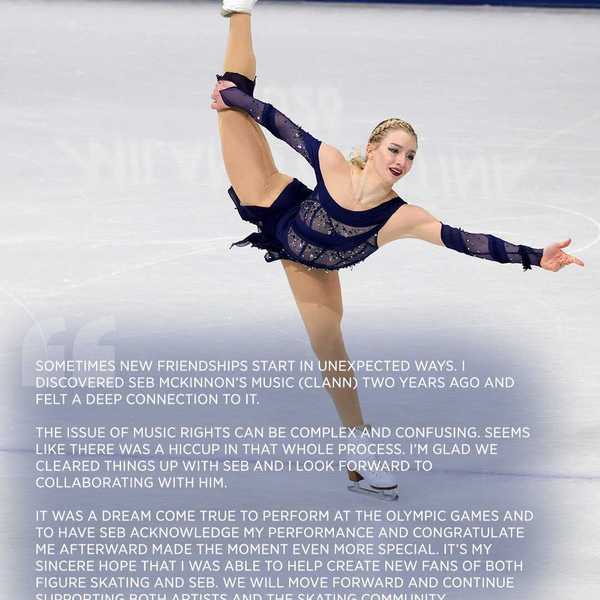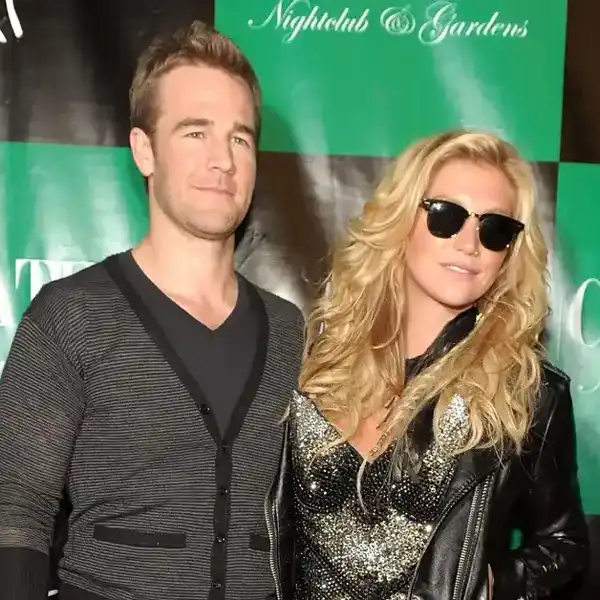Five Questions With… Nadjiwan
The acclaimed Indigenous recording artist and producer has just released a new version of the song Rebound Girl, originally a collaboration with Nunavut singer Kelly Fraser, who tragically passed away a year ago. Here he discusses their work together, the struggles faced by Indigenous artists, and his plans for more recording in 2021.

By Jason Schneider
When Kelly Fraser released the song Rebound Girl in the summer of 2019, it marked a major creative step forward for the Juno-nominated, Nunavut-born singer and Inuit rights activist who first gained national attention through her Inuktitut-language interpretations of such hits as Rihanna’s Diamonds. Rebound Girl found her coming into her own as a pop artist and was intended to lay the groundwork for a full album she planned to record in early 2020.
Tragically, Fraser took her own life on Christmas Eve, 2019, the result of years of coping with PTSD, racism and cyber-bullying. Fraser’s passing dealt a devastating blow to the Indigenous music community, and especially to her Toronto-based producer Marc Meriläinen, aka Nadjiwan. To acknowledge the one-year anniversary of Kelly’s death, Marc decided to re-record Rebound Girl with several of the musicians who played on the original version, along with his sons Fox and Cole serving as the rhythm section. In re-imagining the song in an elegiac fashion, Marc not only offers a moving tribute to Kelly but brings the song back to her original vision.
In his own way, the ever-prolific Meriläinen has become a role model for young Indigenous artists as well, having released six albums and four EPs as Nadjiwan since 1995. These have earned numerous Indigenous music awards and nominations and led to many high-profile live appearances, such as the 2010 Vancouver Winter Olympics and the 2015 Pan-Am Games in Toronto.
In 2021 Nadjiwan will release Star Nation—described as a “space-rock opera”—along with an album of cover songs that he plans to start working on in the summer. But with Rebound Girl, he has fulfilled a promise to Kelly Fraser that he would record the song in the way they originally wrote it.
Nadjiwan's Rebound Girl was released Friday, Dec. 25 via headingnorthmusic.com, and on all digital platforms.
What emotions were you feeling as you recorded your version of Rebound Girl?
I had a lot of mixed emotions going into this project. There was a profound sadness I felt for a long time after Kelly’s passing. Once I started listening to the original multi-track and going through some old photos of the original session it brought back the feelings of happiness and joy that we all felt while recording the original track. Holding on to that spirit, we used that momentum to create this newly realized version of the song. The recording session became a cathartic process. After hearing the final mix of the song, I feel like a part of me had progressed to another stage in the overall healing process.
How did you first come to know Kelly, and what was it like to work with her?
I was first introduced to Kelly a few years back via a mutual friend, Tanya Tagaq, who thought it might be a good idea for us to work together. Kelly was on her way across Canada and made a pit stop at our studio to appear on my podcast. We instantly had chemistry and began working on new songs that she planned on recording for her new album. Our studio became her unofficial Toronto residence and she spent much time working on new material here. I admired Kelly’s dedication to her art and craft. She never had a shortage of creative ideas and always was willing to put in the work to accomplish whatever goal she set for herself.
How to do you think her career would have evolved had she been able to make the record she had planned?
Kelly was a rising star not only within the Indigenous music scene but also in the Canadian music scene. She performed everywhere from community-based events to large-scale music festivals. Her album Sedna garnered much critical and commercial success, and the new record she was working on was definitely a step up in terms of songwriting and arrangements. Kelly was always looking to improve on past successes and take those accomplishments to the next level.
Do you feel that other young Indigenous artists face the same struggles she did, and if so, what kinds of support are needed for them?
Young Indigenous artists do face the same struggles Kelly did, and there are multiple variables and challenges to overcome. Geographical location can be a barrier for some to access facilities such as recording studios or access to equipment. Financial resources and funding for such projects are often limited, and at times difficult to access. However, some of the most divisive and damaging harm sometimes come from within our own communities in the form of lateral violence. More outreach to these communities in terms of providing necessary supports is needed. Workshops to educate potential artists about the music industry are helpful, but also workshops and information pertaining to stopping lateral violence within our communities should be a priority.
What are your plans for 2021 so far?
Our 2021 really depends on what happens with the current Covid-19 situation. Nonetheless, we do have a full-length album planned for release in the Spring, which we are currently putting the final touches on. The record is somewhat of a “space rock opera” that revolves around the Indigenous stories of the “star people” that have been visiting our nations and communities for generations. Then we’re going back in the studio in the summer to record a live-off-the-floor selection of cover songs from artists that influenced the “Nadjiwan sound.” We are also in discussions with Kelly’s family to have the material that was completed for her planned record Decolonized Rhymes to be eventually released sometime in 2021. It really is her best work.

















